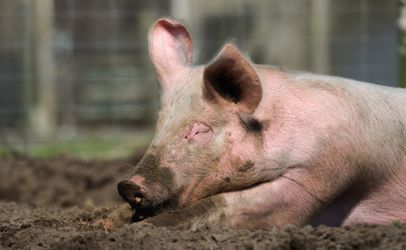 More than 13,000 dead pigs have been fished out of rivers in and near Shanghai, renewing concerns about animal disease and water safety in China, according to the South China Morning Post. The paper reported that among those carcasses found, 9,500 of them were retrieved from the Huangpu River, which is a major source of drinking water for Shanghai. “The quality of the river water and tap water in Shanghai remained normal, the government reiterated yesterday,” the paper reported. “In addition, six straight days of food-quality checks in the city’s markets did not uncover any unqualified pork.” Al Jazeera reported on Sunday that Chinese authorities have found traces of a common pig virus in some of the animals floating in the Huangpu River. “Shanghai’s animal control authority found porcine circovirus, a common disease among hogs that was not known to infect humans, in 13 of 20 samples of internal organs taken from dead pigs retrieved from the Huangpu,” said the Ministry of Agriculture. According to Al Jazeera: “Shanghai has blamed farmers in neighbouring Zhejiang province for casting pigs thought to have died of disease into the river upstream, although officials from the area have admitted to only a single producer doing so. “Despite laws against the practice, animals that die from disease in China can end up in the food supply chain or improperly disposed of,” the report noted. Pork is by far the most popular meat in China – the country is the largest producer and consumer of pork in the world.
More than 13,000 dead pigs have been fished out of rivers in and near Shanghai, renewing concerns about animal disease and water safety in China, according to the South China Morning Post. The paper reported that among those carcasses found, 9,500 of them were retrieved from the Huangpu River, which is a major source of drinking water for Shanghai. “The quality of the river water and tap water in Shanghai remained normal, the government reiterated yesterday,” the paper reported. “In addition, six straight days of food-quality checks in the city’s markets did not uncover any unqualified pork.” Al Jazeera reported on Sunday that Chinese authorities have found traces of a common pig virus in some of the animals floating in the Huangpu River. “Shanghai’s animal control authority found porcine circovirus, a common disease among hogs that was not known to infect humans, in 13 of 20 samples of internal organs taken from dead pigs retrieved from the Huangpu,” said the Ministry of Agriculture. According to Al Jazeera: “Shanghai has blamed farmers in neighbouring Zhejiang province for casting pigs thought to have died of disease into the river upstream, although officials from the area have admitted to only a single producer doing so. “Despite laws against the practice, animals that die from disease in China can end up in the food supply chain or improperly disposed of,” the report noted. Pork is by far the most popular meat in China – the country is the largest producer and consumer of pork in the world.
Sponsored by Marler Clark
